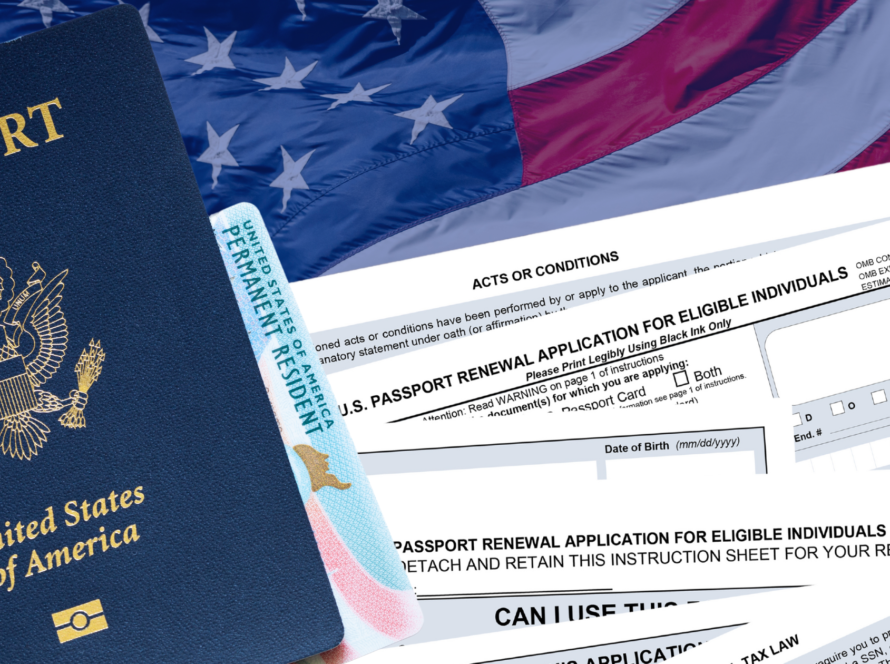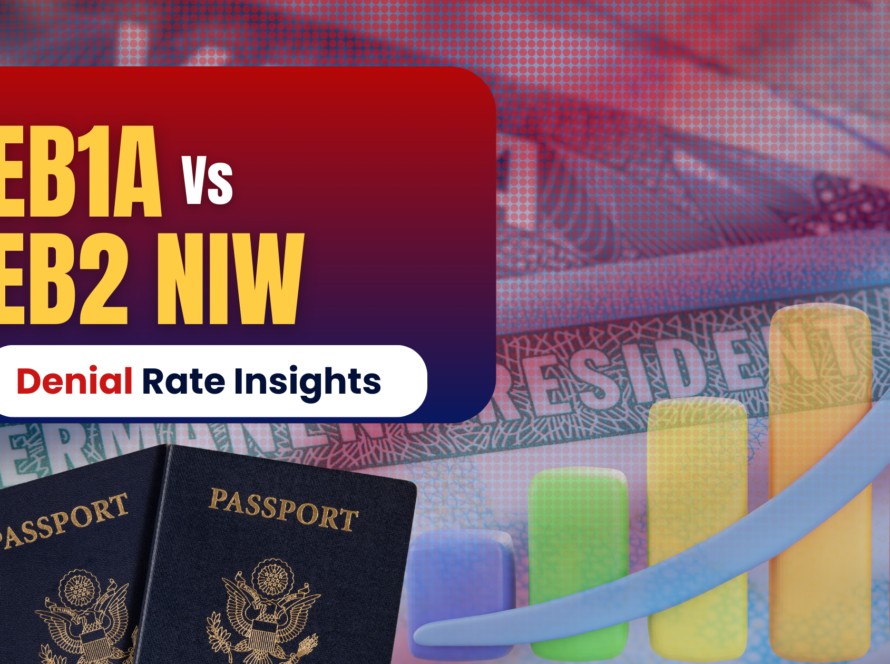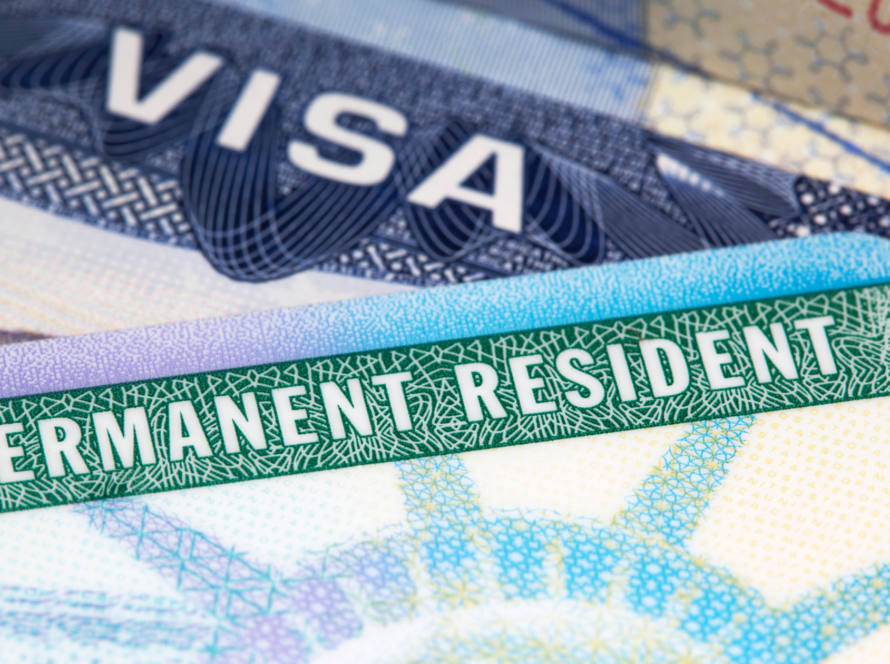
Filing an EB1A petition is one of the fastest ways for extraordinary professionals to secure a U.S. green card. However, even well-prepared petitions can encounter delays due to Requests for Evidence (RFEs). An RFE is issued by USCIS when they need additional documentation or clarification before making a decision. Understanding the common RFE triggers for EB1A petitions is essential because it allows applicants to address potential issues proactively, improve their petitions, and avoid unnecessary delays.
In this article, we’ll explore the 10 most frequent RFE triggers for EB1A petitions, explain why they occur, and provide guidance for applicants.
Understanding the Importance of RFE Triggers
RFEs are not uncommon in EB1A petitions because USCIS evaluates these applications very strictly. Each petition is judged on whether it convincingly demonstrates extraordinary ability, supported by independent recognition, evidence of significant impact, and a clear track record of sustained achievement. By knowing what commonly triggers RFEs, applicants can avoid simple mistakes that cause delays or denials.
Before we explore the triggers, it’s important to understand that the EB1A standard is higher than EB2 NIW. While EB2 NIW focuses on national interest, EB1A emphasizes extraordinary ability recognized at a national or international level. This distinction often becomes a key factor in RFEs.
10 Common RFE Triggers for EB1A Petitions
1. Insufficient Evidence of Extraordinary Ability
One of the most frequent reasons for RFEs is that the petition does not clearly show that the applicant meets the EB1A criteria. USCIS looks for tangible evidence that you have achieved a level of expertise that is truly extraordinary in your field. For example, if your petition relies heavily on minor awards or your work is presented without supporting documentation such as published articles or patents, USCIS may request additional proof to validate your achievements.
2. Weak or Generic Recommendation Letters
Letters of recommendation play a crucial role in EB1A petitions, and RFEs often arise when letters fail to provide concrete examples of your contributions. USCIS looks for letters that:
- Clearly explain your impact and role
- Come from independent, well-known experts in your field
- Avoid generic phrases like “excellent researcher” without specifics
3. Overreliance on EB2 NIW Evidence
Applicants choosing EB1A over EB2 NIW sometimes assume that their existing documentation is sufficient. However, EB1A has a higher evidentiary standard, and evidence that merely shows national interest relevance may not demonstrate extraordinary ability. RFEs often occur because USCIS requires stronger proof of independent recognition, significant contributions, and a clear impact on your field.
4. Incomplete or Missing Documentation
Even seemingly minor omissions, such as missing employment verification letters, education certificates, or copies of passports, can trigger an RFE. USCIS requires a complete record to verify your claims. If the petition lacks clear and consistent supporting documents for your achievements, officers are likely to request clarification before making a decision.
5. Misalignment Between Claims and Evidence
Another frequent trigger is a mismatch between the petition narrative and supporting documentation. For instance, if your petition claims that you played a key role in a significant project but the evidence does not reflect your contribution or is contradictory, USCIS will issue an RFE. It is essential that all claims are supported with verifiable evidence, including published articles, awards, or media recognition.
6. Ambiguous or Weak Impact Statements
USCIS looks for concrete examples of how your work has made a substantial impact. Statements that are vague, such as “I contributed to research” or “my work benefited my organization,” do not sufficiently demonstrate extraordinary ability. Applicants often receive RFEs when their contributions lack measurable outcomes, such as the number of citations, patents, number of designed products, % contribution to return on investment (some examples outside publications), or other recognized achievements.
7. Lack of Independent Recognition
Recognition from independent sources is critical. RFEs can occur when awards, publications, or media mentions come solely from your employer, local associations, or immediate colleagues. USCIS expects that your achievements are acknowledged by parties who have no direct personal or professional stake in your work.
8. Failure to Demonstrate Sustained Accomplishments
A successful EB1A petition demonstrates ongoing excellence in your field. RFEs often target applicants whose achievements appear isolated or limited to a short period. USCIS wants evidence of a sustained record of significant contributions, showing that you are consistently influential in your field over time.
9. Poorly Organized Petitions
Organization matters. Petitions that are disorganized, contain redundant or confusing information, or fail to clearly link evidence to EB1A criteria often trigger RFEs. For example, if exhibits are not labeled or referenced properly, USCIS may find it difficult to evaluate the strength of your petition, resulting in requests for additional clarification.
10. Inconsistent Employment or Immigration History
Discrepancies in employment dates, immigration history, or educational records are a common RFE trigger. USCIS reviews your entire career and educational timeline to ensure consistency and credibility. Gaps in employment, unexplained career changes, or inconsistent documentation can prompt USCIS to request further clarification. For instance, if your employment letters have conflicting dates or your resume does not match supporting evidence, this can delay approval.
How to Minimize RFE Risks in EB1A Petitions
While RFEs are sometimes unavoidable, there are effective strategies to reduce the likelihood of receiving one:
- Provide Clear and Comprehensive Documentation: Ensure all claims are backed by detailed evidence. Include copies of publications, patents, awards, recommendation letters, and any media mentions. Every achievement should be supported with verifiable proof.
- Highlight Independent Recognition: Demonstrate that your work is acknowledged by authorities outside your immediate circle. Independent letters of recommendation and third-party validation are especially important for EB1A approval.
- Maintain Consistency Across Records: Double-check that all employment, education, and immigration documents align perfectly. Any discrepancies or gaps should be explained clearly in the petition.
- Focus on Measurable Impact: Quantify achievements wherever possible. Include statistics, citation counts, or other metrics that show your contributions have had a real and significant effect in your field.
- Organize the Petition Logically: Structure your application so that each EB1A criterion is addressed in a dedicated section, with clearly labeled exhibits that are easy to follow. A well-organized petition helps USCIS officers evaluate your case quickly and accurately.
- Treat EB1A as a Separate Petition: If you’re making a decision to apply for EB1A rather than EB2 NIW, do not rely solely on the prior documentation you put together for EB2 NIW.. Emphasize extraordinary achievements that demonstrate national or international impact beyond the national interest focus of EB2 NIW.
FAQs About EB1A RFE Triggers
Q1: How long do I have to respond to an RFE?
Typically 60–90 days. Responding late can result in denial.
Q2: Can reusing EB2 NIW evidence trigger an RFE?
Yes, especially if the evidence does not meet EB1A’s higher standard for extraordinary ability.
Q3: What should I include in recommendation letters?
Letters should be from independent experts who provide specific examples of your contributions and their impact.
Q4: Can inconsistent employment records cause RFEs?
Yes, any discrepancies or gaps in your employment, education, or immigration history can trigger a request for clarification.
Conclusion: Strengthen Your EB1A Petition
Being aware of the top RFE triggers for EB1A petitions allows applicants to address potential issues proactively. Strong evidence, clear organization, measurable impact, and independent recognition are essential for approval.
Book a Consultation to understand your best path for U.S. employment-based immigration.
Let’s make Your EB2-NIW & EB1A journey a success! Stay connected with us! Follow My Green Card Story on all our socials for the latest updates, tips, and inspiring success stories. Got questions? We’re here to help!



